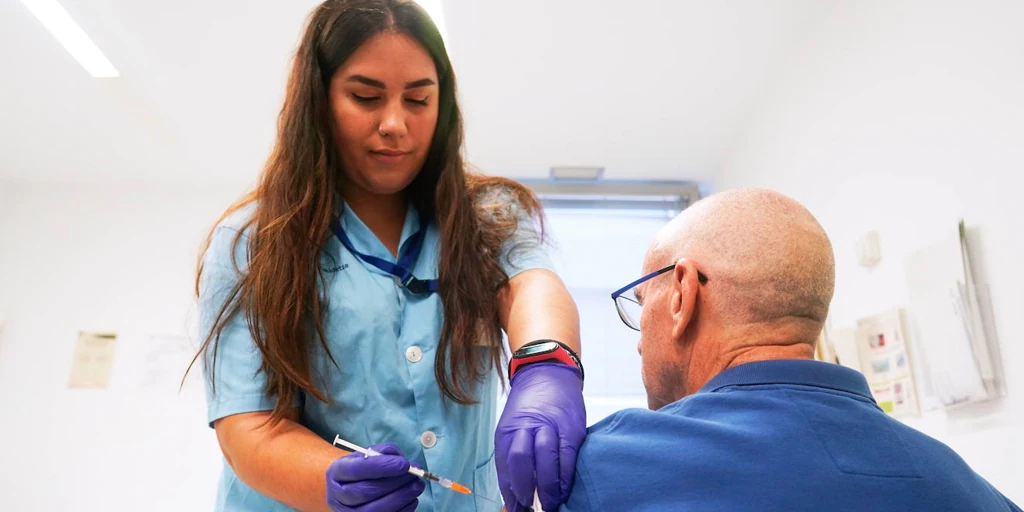As winter approaches, the WHO Regional Office for Europe, the European Commission and the European Center for Disease Control and Prevention (ECDC) have a clear and urgent message: They still have no protection against seasonal and Covid-19 flu ——especially the most vulnerable and at-risk groups—— They must accept any offer of vaccination Prevent or mitigate the effects of these cocirculating respiratory infections.
Last year’s fall and winter were unpredictable.The cumulative impact of influenza, Covid-19 and respiratory syncytial virus (RSV) last winter They mainly affect the youngest and oldest people.
Pediatric and intensive care units suffered the consequences, excess mortality. The EU noted that while the outlook may look calm now, “this autumn we must work together to prevent excess mortality by protecting those most affected in our communities: people with comorbidities, the immunosuppressed, The elderly and pregnant women.”
Vulnerable groups take center stage
More than 90% died Covid-19 reports correspond to people aged 65 or older. However, worryingly, data received by WHO from 53 Member States shows that less than two-thirds (63%) of this group have received their first booster dose of a Covid-19 vaccine. Only 29% got a second.
But the World Health Organization points out that in addition to knowing how many doses of vaccine have been administered in total, it is important to understand when vulnerable groups and groups received their last dose. This information “will better help countries measure and track vaccine coverage.” efficiency and effectiveness”. ».
Extra dosage for the elderly or pregnant women
WHO recommends offering it to priority groups, including the elderly, immunosuppressed and pregnant women Additional doses 6 to 12 months after last injectiondepending on your risk level.
Dr Hans Henri P Kluge, WHO Regional Director for Europe, said: “Covid-19 and influenza remain serious diseases, especially for the most vulnerable, including those who have not completed their vaccination course.”
The call for vaccination also applies to health professionalswhich one More susceptible to risk of infection They must protect their patients. Healthcare workers should complete their primary COVID-19 vaccination series if they have not already done so and, if eligible, receive additional doses before winter.
«Vaccination remains our most effective tool. It is crucial to launch specific vaccination campaigns before winter to reach those at risk. ” explained Stella Kyriakides, EU Commissioner for Health and Food Safety.
Steps to protect yourself from respiratory infections
According to the World Health Organization, there are some simple steps we can all take to protect ourselves and others from respiratory infections this fall and winter, such as ensuring good respiratory hygiene by: Use a mask when feeling unwellcough into your elbow or tissue, If you are sick, please stay home and maintain adequate ventilation in enclosed spaces.
Along with vaccinations, these measures can help reduce infection rates and ease the burden on health care systems this fall and winter.

